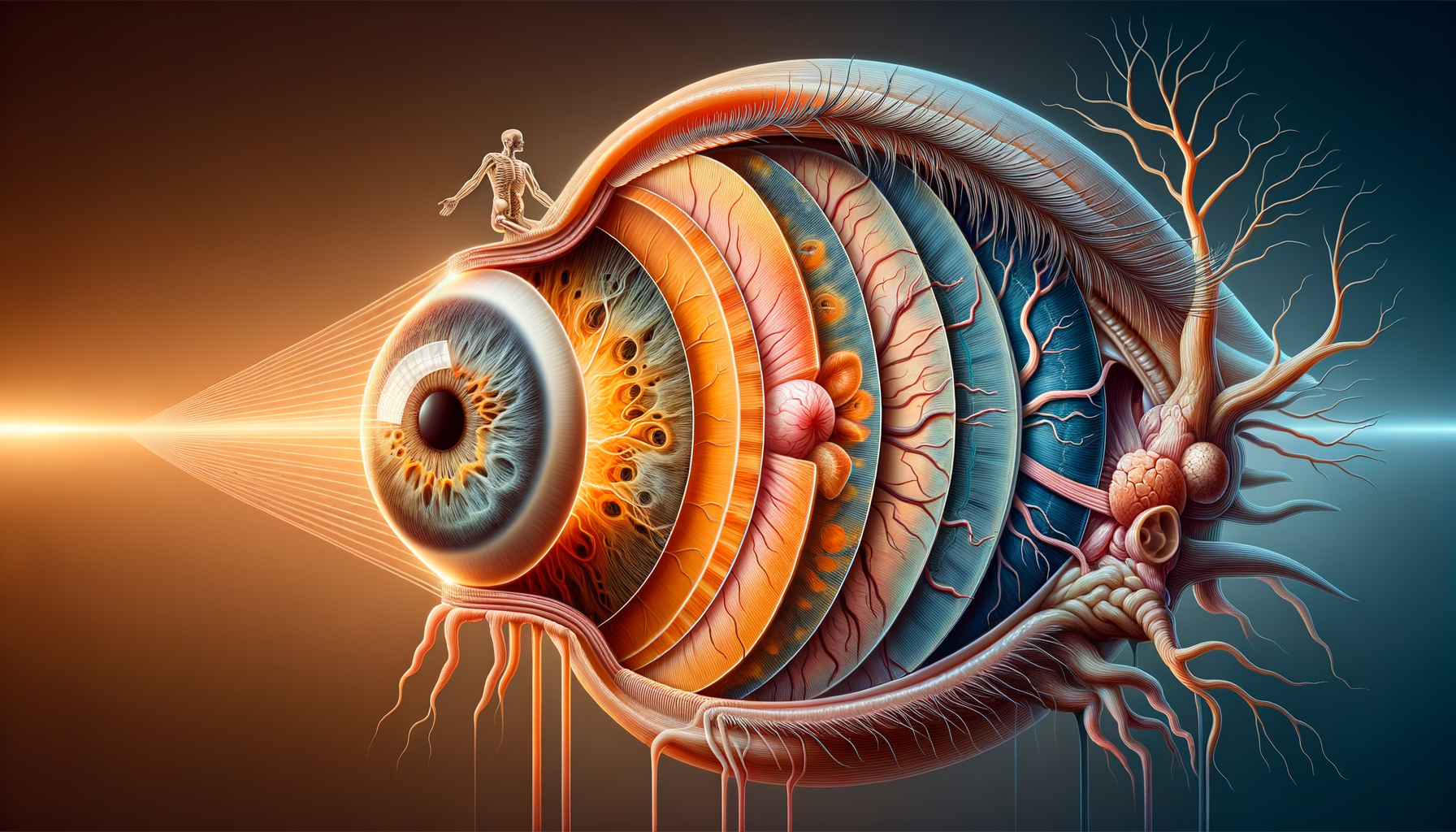Understanding Macular Degeneration
Macular degeneration is a common eye condition that primarily affects older adults, leading to the deterioration of the macula, a small central portion of the retina. This condition is a leading cause of vision loss among people aged 50 and older. The macula is crucial for sharp, central vision, which is essential for reading, driving, and recognizing faces. When the macula deteriorates, it can significantly impair these activities.
There are two main types of macular degeneration: dry and wet. Dry macular degeneration is more common and occurs when the macula thins over time as part of the aging process. It typically progresses slowly and may not cause significant vision loss initially. Wet macular degeneration, on the other hand, is less common but more severe. It occurs when abnormal blood vessels grow under the retina and leak fluid or blood, rapidly damaging the macula.
While the exact cause of macular degeneration remains unclear, several risk factors have been identified. These include aging, genetics, smoking, high blood pressure, and obesity. Understanding these risk factors is crucial for early detection and management of the condition.
Symptoms and Diagnosis of Macular Degeneration
Recognizing the symptoms of macular degeneration early can lead to more effective management of the condition. Common symptoms include blurred or distorted vision, difficulty recognizing faces, and a dark or empty area in the center of vision. These symptoms can affect one or both eyes, and their progression can vary from person to person.
Diagnosing macular degeneration typically involves a comprehensive eye examination. An eye care professional may use several tests to assess the condition of the macula. These tests can include:
- Amsler grid test: This simple test helps detect vision changes caused by macular degeneration. Patients look at a grid of straight lines to check for any distortions or missing areas in their vision.
- Optical coherence tomography (OCT): This imaging test provides detailed cross-sectional images of the retina, allowing for the detection of any abnormalities in the macula.
- Fluorescein angiography: In this test, a dye is injected into the bloodstream, and images are taken as the dye passes through the blood vessels in the retina. This helps identify abnormal blood vessels associated with wet macular degeneration.
Early diagnosis is essential for managing macular degeneration effectively, as it allows for timely intervention and treatment.
Treatment Options for Macular Degeneration
Treatment for macular degeneration aims to slow the progression of the disease and preserve vision for as long as possible. While there is no cure, several treatment options are available, particularly for wet macular degeneration. These treatments can include:
- Anti-VEGF therapy: This involves the injection of medications into the eye to block the growth of abnormal blood vessels and reduce fluid leakage. This treatment can help stabilize or even improve vision in some patients.
- Photodynamic therapy: This treatment uses a light-activated drug to destroy abnormal blood vessels. It is less commonly used today but can be effective in certain cases.
- Laser therapy: High-energy laser beams are used to seal leaking blood vessels, although this method is less common due to potential damage to surrounding healthy tissue.
For dry macular degeneration, lifestyle changes and nutritional supplements may be recommended. These can include a diet rich in leafy greens, fish, and nuts, as well as supplements containing vitamins C and E, zinc, and lutein. These measures can help slow progression and support overall eye health.
Lifestyle Modifications and Preventive Measures
While treatment options are available, adopting certain lifestyle modifications can play a significant role in managing macular degeneration and reducing the risk of progression. Here are some preventive measures and lifestyle changes to consider:
- Quit smoking: Smoking is a major risk factor for macular degeneration. Quitting smoking can significantly reduce the risk of developing the condition or slowing its progression.
- Maintain a healthy diet: A diet rich in antioxidants, vitamins, and minerals supports eye health. Consuming plenty of fruits, vegetables, and omega-3 fatty acids found in fish can be beneficial.
- Regular exercise: Engaging in regular physical activity helps maintain overall health and can contribute to better eye health.
- Protect your eyes: Wearing sunglasses that block UV rays can protect your eyes from sun damage, which is thought to contribute to macular degeneration.
- Regular eye check-ups: Routine eye examinations can help detect early signs of macular degeneration and other eye conditions, allowing for timely intervention.
By incorporating these preventive measures into daily life, individuals can take proactive steps to protect their vision and manage macular degeneration effectively.
Future Directions in Macular Degeneration Research
Research into macular degeneration is ongoing, with scientists exploring new treatments and interventions to improve outcomes for those affected by the condition. Advances in technology and a deeper understanding of the disease mechanisms are driving these efforts.
One promising area of research is gene therapy, which aims to correct or replace defective genes responsible for macular degeneration. This approach has the potential to address the underlying causes of the disease and provide long-term solutions.
Stem cell therapy is another area of interest, with researchers investigating the possibility of using stem cells to regenerate damaged retinal cells. While still in the experimental stages, this approach holds promise for restoring vision in individuals with advanced macular degeneration.
Additionally, new drug therapies are being developed to target specific pathways involved in the progression of the disease. These therapies aim to provide more effective and personalized treatment options for patients.
As research continues, there is hope that new breakthroughs will lead to improved treatments and a better quality of life for individuals living with macular degeneration.








